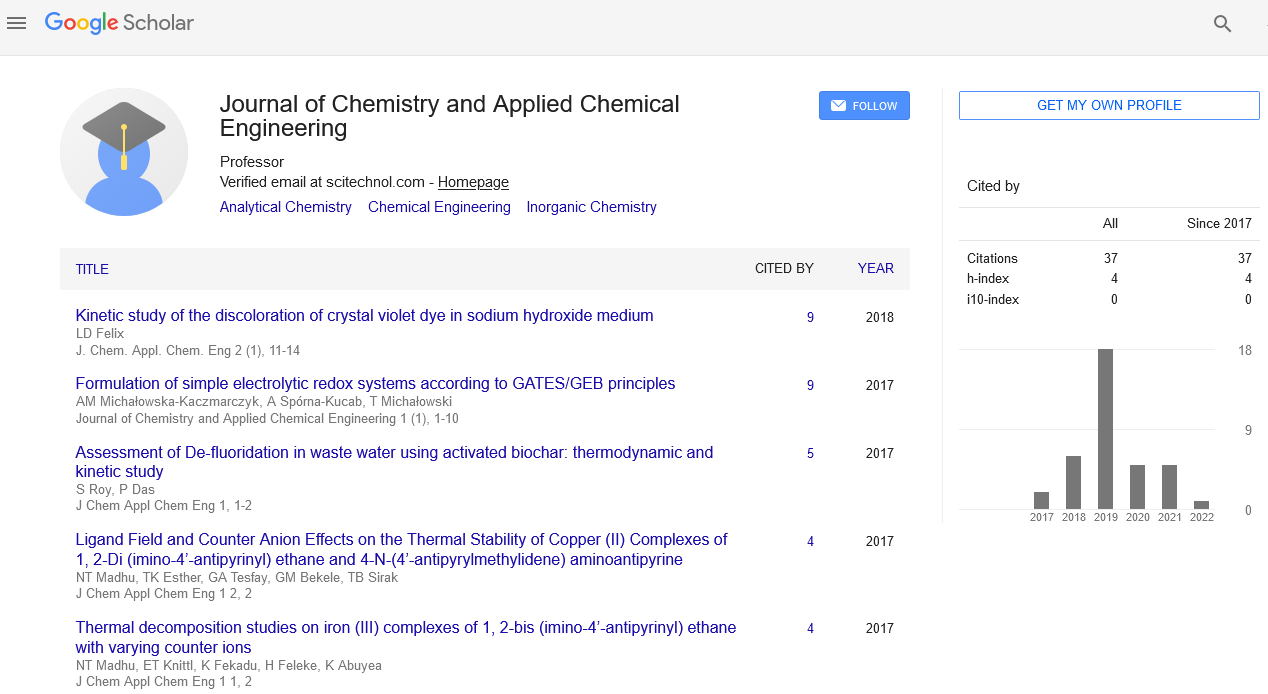New strategies for targeted inducing and real-time fluorescence imaging of lysosomal tumor cell death
Jiangwei Tian
China Pharmaceutical University, China
: J Chem Appl Chem Eng
Abstract
Despite rapid advances in diagnostic and therapeutic procedures, cancer remains one of the most deadly diseases in the world today. There is a strong need to identify new targets and develop novel approaches for the accurate cancer detection and targeted therapy. Lysosomes are critical organelles for cellular homeostasis and can be used as potential targets to kill tumor cells from inside. In the previous works, we have developed several photo-therapeutic methods to overproduce reactive oxygen species (ROS) to trigger lysosomal membrane permeabilization (LMP)-associated cell death pathway. However, these technologies rely on extra irradiation to activate the photosensitizers, which limits the applications in treating deep seated tumors and widespread metastatic lesions. Here we reports a multifunctional nanoprobe to achieve targeted lysosomal tumor cell death without irradiation and real-time monitoring of drug-induced effect through encapsulating artemisinin and dual protease light-up nanoprobe in a transferrin-functionalized liposome. The nanoprobe can be specifically uptaken by tumor cells via transferrin receptor- mediated endocytosis to enter lysosomes, in which artemisinin reacts with affluent ferrous to generate ROS for LMP-associated cell death. By virtue of confocal fluorescence imaging, the artemisinin location in lysosome, ROS-triggered LMP and ultimate cell apoptosis can be visualized with the cathepsin B and caspase-3 activatable nanoprobe. Notably, the artemisinin-mediated ROS evolving for tumor therapy and real-time therapeutic monitoring were successfully implemented by living imaging in tumor-bearing mice, which broaden the nanoprobe for in vivo theranostics and may offer new opportunities for precise medicine.
Biography
Jiangwei Tian works in China Pharmaceutical University (CPU) as an Associate Professor. He obtained his Ph.D. degree in School of Chemistry and Chemical Engineering from Nanjing University in 2014 and studied as a visting scholar in Department of Chemistry of Stanford University in 2018. His research interest is focused on the design and synthesis of molecular and nano probes for bioactive compounds detection and imaging in living cells and in vivo. He has published 34 papers in peer-reviewed journals of J. Am. Chem. Soc., Angew. Chem. Int. Ed., Chem. Sci., Anal. Chem. and so on.
E-mail: jwtian@cpu.edu.cn
 Spanish
Spanish  Chinese
Chinese  Russian
Russian  German
German  French
French  Japanese
Japanese  Portuguese
Portuguese  Hindi
Hindi 